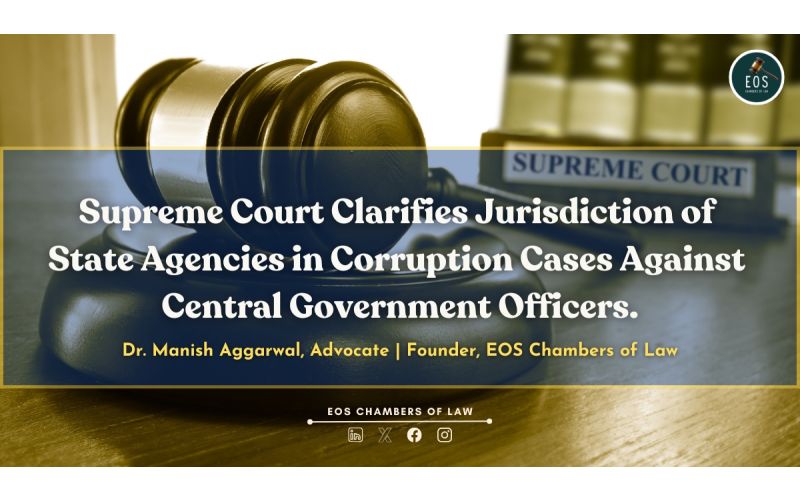Anti-Money Laundering (AML) Compliance: Best Practices for L

Anti-Money Laundering (AML) Compliance: Best Practices for Law Firms
In today's globalized economy, money laundering poses a significant threat to financial systems and institutions, including law firms. As facilitators of various financial transactions, law firms are often targeted by money launderers seeking to legitimize illicit funds. Anti-Money Laundering (AML) compliance is, therefore, not just a regulatory requirement but a critical aspect of legal practice to maintain integrity and trust. Here’s an overview of the importance of AML compliance and best practices for law firms to implement.
The Importance of AML Compliance
1. Legal and Regulatory Obligations
Law firms must adhere to AML regulations set forth by authorities such as the Financial Action Task Force (FATF) and national regulators. Non-compliance can lead to severe penalties, including hefty fines, suspension of licenses, and even criminal charges against the firm or its partners.
2. Protecting Firm Reputation
Engagement in money laundering, whether knowingly or unknowingly, can severely damage a law firm's reputation. Maintaining a robust AML compliance program demonstrates a firm’s commitment to ethical practices and enhances its reputation among clients and peers.
3. Mitigating Financial Risks
AML compliance helps in identifying and mitigating financial risks associated with illicit activities. By implementing effective AML measures, law firms can prevent themselves from becoming conduits for money laundering, thus safeguarding their financial stability.
4. Enhancing Client Trust
Clients expect their legal representatives to adhere to the highest ethical standards. A strong AML compliance framework reassures clients that the firm is committed to maintaining the legality and integrity of their transactions.
Best Practices for AML Compliance
1. Implement a Risk-Based Approach
Adopt a risk-based approach to AML compliance. This involves identifying, assessing, and understanding the risks your firm faces. Tailor your AML measures to address these specific risks effectively. Conduct regular risk assessments to stay updated on new and emerging threats.
2. Know Your Client (KYC) Procedures
Implement thorough KYC procedures to verify the identity of clients. This includes collecting and verifying personal information, understanding the nature of the client’s business, and monitoring ongoing client activity. Enhanced due diligence should be applied to high-risk clients.
3. Regular Training and Education
Provide ongoing AML training for all employees, from junior staff to senior partners. Training should cover the latest AML regulations, internal policies, and procedures, as well as how to identify and report suspicious activities.
4. Establish Clear Policies and Procedures
Develop and maintain comprehensive AML policies and procedures. Ensure these policies are well-documented and easily accessible to all employees. Regularly review and update the policies to reflect changes in regulations and emerging risks.
5. Monitor and Report Suspicious Activity
Implement robust monitoring systems to detect suspicious activities. Ensure there is a clear process for reporting suspicious transactions internally and to the relevant authorities. Staff should feel confident in reporting without fear of reprisal.
6. Appoint an AML Compliance Officer
Designate a dedicated AML Compliance Officer responsible for overseeing the firm’s AML program. This person should have the authority and resources to enforce compliance measures and act as a liaison with regulatory bodies.
7. Maintain Detailed Records
Keep detailed records of all transactions, client interactions, and AML compliance activities. This documentation is crucial for demonstrating compliance during regulatory inspections and audits.
8. Regular Audits and Reviews
Conduct regular internal audits to assess the effectiveness of your AML program. Independent reviews can help identify weaknesses and areas for improvement. Ensure that findings from audits are addressed promptly.
Conclusion
AML compliance is essential for law firms to protect against the risks of money laundering and maintain their integrity and reputation. By implementing best practices such as a risk-based approach, thorough KYC procedures, regular training, and robust monitoring systems, law firms can effectively manage AML risks. Staying vigilant and proactive in AML compliance not only meets regulatory obligations but also enhances client trust and the firm’s overall credibility.
Post Categories
Featured Posts
Latest Posts
Latest Posts

NRIs and Taxation in India Legal Tips for Compliance and Avoiding Disputes...
Navigating the tax landscape in India can be challenging for Non-Resident Indians NRIs Understanding your tax obligations is crucial to avoid disputes and penalties Here are some essential legal tips to help NRIs ensure compliance and protect their financial interests...

Supreme Court Clarifies Jurisdiction of State Agencies in Corruption Cases Again...
The of India has recently delivered a judgment of far-reaching significance in the context of corruption prosecutions involving Central Government employees Although the matter was argued on behalf of the petitioner and the decision ultimately went against us...

Members Of Railway Protection Force Can Seek Benefit Under Employees Compensation Act Though RPF...
The Supreme Court on Monday held that an officer of the Railway Protection Force RPF can seek compensation under Employees Compensation Act even though the RPF has been declared to be an armed force of the Union ldquo in...

DBS Bank Directors Can t Be Prosecuted For Acts Of Lakshmi Vilas Bank Before...
The Supreme Court today ruled that DBS Bank and its directors who were appointed after the amalgamation with Lakshmi Vilas Bank LVB and had their appointments approved by the Reserve Bank of India RBI cannot be held criminally liable for...

Protecting Your Rights in Family Law Matters Legal Solutions for NRIs...
Navigating family law matters can be especially challenging for Non-Resident Indians NRIs who may face unique legal complexities Whether dealing with divorce child custody or property disputes understanding your rights and available legal solutions is crucial Here are some key...

No right for queer couples to jointly adopt SC in same-sex marriage verdict...
The CJI said the law didn't preclude unmarried couples from adopting Chief Justice of India DY Chandrachud while announcing his verdict on a clutch of petitions demanding legal status to same-sex marriages today struck down the Central Adoption Resource Authority's...

Speak With Our
Get a Appointment
















